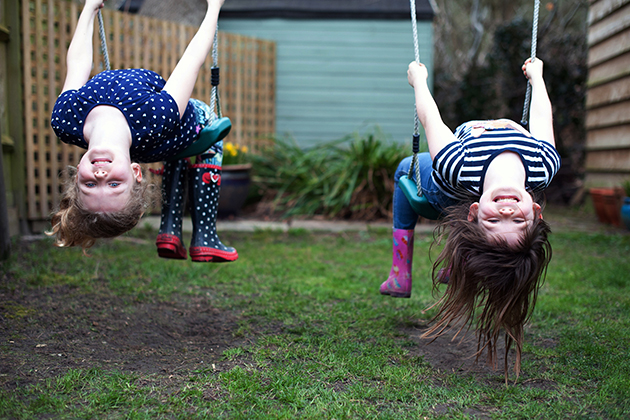
Photo: Getty Images
A bevy of things can affect your relationship — and one of them is your birth order. When you think about it, it makes perfect sense. “Our experience growing up shapes our adult selves, and the relationships in the early family form patterns we tend to follow in adult life — unless we take steps to change them,” explains Tina B. Tessina, Ph.D., psychotherapist and author of How to be Happy Partners: Working it out Together. “Birth order has been found to influence character and personality in definable ways, and of course our character and personality traits affect how we act in relationships.”
So how does your specific birth order influence your romantic relationships? Read on to find out.
Firstborns
The eldest child is the most cautious child, according to Cora Hietpas, MA, LMFT. And, “in a romantic relationship, this can mean being more guarded,” she says, whether that’s about his or her finances or future plans. Not only that, but firstborns are natural leaders. “They’re used to being the one to make decisions because they took on a leadership role for their younger siblings,” Hietpas says. That can mean the eldest child will want to be the leader in his or her romantic relationship, so to speak. But that’s not necessarily a bad thing. “Firstborn children are also likely to be reliable in their romantic relationships,” Hietpas explains. “When younger siblings and parents expect the oldest child to be a role model, a dependable attribute tends to shine through.”
Middle children
According to Tessina, “The second child tends to take the road not taken by the first, so if the first is rebellious, the second is more amenable. If the eldest shines in academics, the second tends toward sports or artistic pursuits. If the older child is cooperative, the second tends to be more rebellious.” That can make for a wild card partner in relationships, but there are some standby characteristics you can count on. “In an adult relationship, this person may not be clear what he or she wants, and may store up resentment,” Tessina warns. But middle children may also be used to playing peacemaker between their older and younger siblings, which can make them adept at navigating disagreements with a significant other.
See More: Real Brides’ Stories of How They Decided to Have Children
Youngest children
The youngest child is used to seeking attention, Hietpas says. “In a romantic relationship, this can mean needing more attention than other birth order places,” she explains. “The youngest child tends to respond well to positive affirmations and compliments from their partner.” The baby of the family is also often a free spirit, and that can affect his or her romantic relationships because “this person will feel comfortable with being spontaneous with things like spending money and date ideas,” Hietpas explains. “They want to keep things new and alive in their romantic relationships.” But, additionally, “the youngest child has been used to other people making decisions and taking the lead. This can mean they will expect their partners to make some decisions, such as where to eat or what movie to see.”
Only children
Only children make for independent adults. “This can mean not wanting to have to depend on their partner for things,” says Hietpas. “An only child will like his or her own space in a relationship. It would be a good idea for the partner of an only child to help nurture separate interests.” Not only that, but an only child tends to be diligent. “When arguing with a partner, this can mean likeliness to be stubborn in a certain viewpoint and an unwillingness to compromise,” Hietpas warns. But he or she also leans towards being sensitive. “They feel uncomfortable with criticism,” she says. “If their romantic partners verbalize a complaint, they may take it as a personal attack.”
